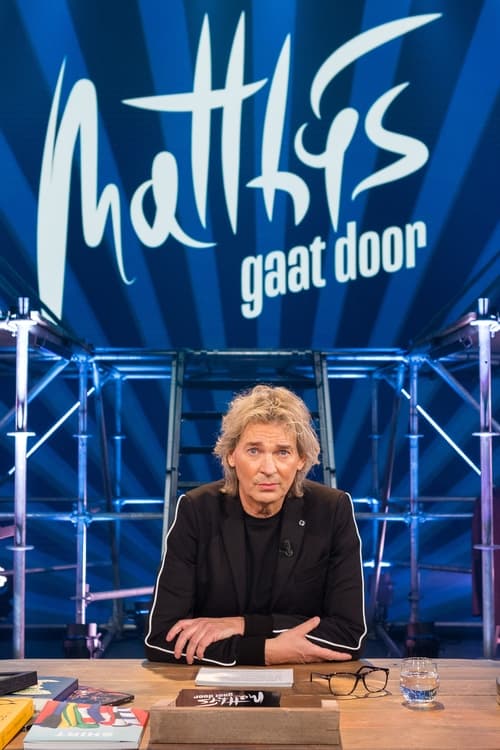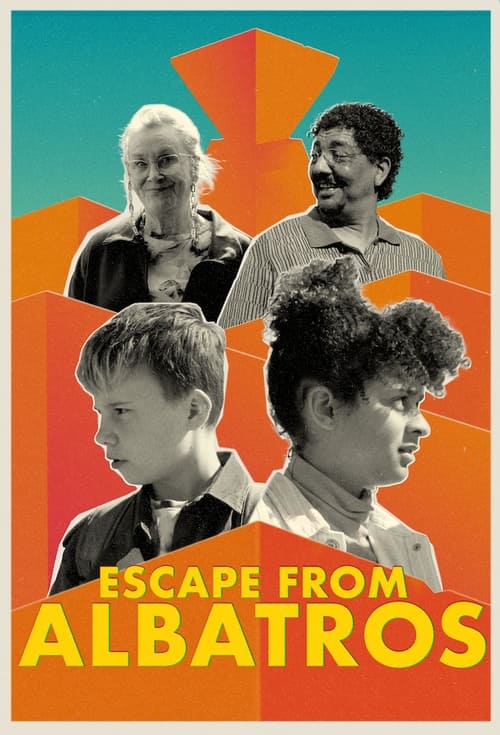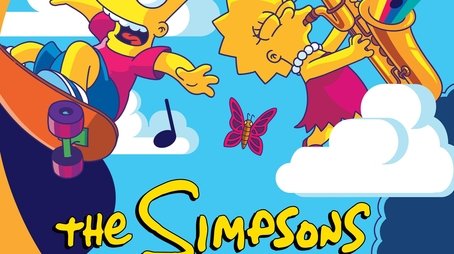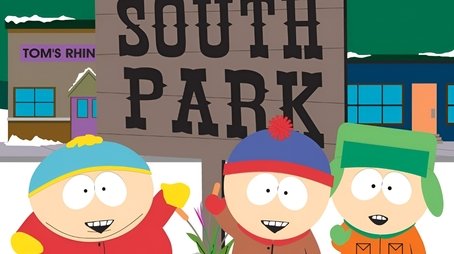
Ask Your Own Question
What is the plot?
In the opening scene of "Episode 13," Lisa is seen sitting at her kitchen table, staring blankly at a half-finished cup of coffee. The morning light filters through the window, casting a warm glow on her face, but her expression is one of deep contemplation. She is grappling with the aftermath of a recent confrontation with her estranged father, which has left her emotionally drained. As she absentmindedly stirs her coffee, her phone buzzes with a message from her best friend, Mia, asking if they can meet to talk.
The scene shifts to a local café where Lisa and Mia meet. The café is bustling with activity, and the aroma of freshly brewed coffee fills the air. Lisa appears distracted, her mind still preoccupied with her father. Mia, noticing Lisa's demeanor, presses her for details about the confrontation. Lisa reluctantly shares that her father wants to reconnect, but she feels conflicted about whether to let him back into her life. Mia encourages her to consider the possibility of forgiveness, but Lisa remains hesitant, torn between her desire for closure and her fear of being hurt again.
Later, Lisa decides to visit her father, who lives in a modest apartment on the outskirts of town. As she approaches the building, her heart races, and she hesitates at the door. After a moment of internal struggle, she knocks. Her father answers, looking older and more vulnerable than she remembers. The initial awkwardness is palpable as they exchange greetings. Lisa's father invites her in, and they sit in the living room, surrounded by remnants of a life once shared. The conversation starts off cautiously, with both of them avoiding the elephant in the room.
As they talk, Lisa's father expresses regret for the past and explains the circumstances that led to their estrangement. He reveals that he has been attending therapy and is trying to make amends. Lisa listens, her emotions a mix of anger and sadness. She confronts him about the pain he caused her and the years lost. The tension escalates as they argue, but eventually, Lisa breaks down, revealing her longing for a father-daughter relationship. This moment of vulnerability leads to a tentative reconciliation, with her father promising to be more present in her life.
The next scene transitions to Lisa at work, where she is a graphic designer. She is distracted and unfocused, struggling to meet a deadline for a project. Her boss, noticing her lack of concentration, pulls her aside for a conversation. He expresses concern for her well-being and encourages her to take some time off to sort through her personal issues. Lisa appreciates the concern but feels guilty about leaving her team behind. After some internal debate, she decides to take a short leave, hoping it will give her the space she needs to process her emotions.
During her time off, Lisa spends more time with Mia, who suggests they take a weekend trip to the beach to clear their heads. Lisa agrees, and they embark on a spontaneous road trip. The beach is picturesque, with golden sands and crashing waves. As they walk along the shore, Lisa opens up about her father and the complexities of their relationship. Mia listens intently, offering support and reminding Lisa that she deserves happiness. This trip becomes a turning point for Lisa, as she begins to embrace the idea of forgiveness and moving forward.
Back in the city, Lisa returns to her father's apartment for a follow-up visit. This time, the atmosphere is lighter, and they share stories and laughter. Lisa's father presents her with a small gift--a framed photo of them from her childhood. This gesture touches Lisa deeply, and she realizes that while the past cannot be changed, they can create new memories together. They agree to take things slowly, rebuilding their relationship one step at a time.
The episode culminates in a poignant scene where Lisa stands on her balcony, looking out at the city skyline. The sun sets, casting a warm glow over everything. She reflects on her journey of healing and the importance of family, feeling a sense of hope for the future. The camera pans out, capturing her silhouette against the vibrant sky, symbolizing her newfound strength and willingness to embrace change.
What is the ending?
In the ending of "Lisa," Season 2, Episode 13, Lisa confronts her past and makes a pivotal decision about her future. The episode culminates in a tense confrontation with her estranged father, leading to a moment of emotional catharsis. Lisa ultimately chooses to embrace her independence, leaving behind the toxic relationships that have held her back. The episode closes with her stepping into a new chapter of her life, symbolizing hope and renewal.
As the episode unfolds, we find Lisa standing in her childhood home, the walls adorned with faded photographs that evoke memories of her past. The air is thick with tension as she prepares to confront her father, a man whose absence has haunted her for years. The camera captures her nervous fidgeting, her fingers tracing the edges of a worn-out photo of them together, a stark reminder of the love that was once there but has since turned sour.
Scene by scene, the narrative builds. Lisa's heart races as she hears the familiar sound of her father's footsteps approaching. The door creaks open, and there he stands, older and wearier, yet still carrying the weight of unresolved issues. Their eyes meet, and a flood of emotions washes over Lisa--anger, sadness, and a flicker of hope for reconciliation.
The conversation begins with awkward pleasantries, but it quickly escalates into a heated argument. Lisa's voice trembles with pent-up frustration as she accuses him of abandoning her and her mother. Her father, defensive and dismissive, tries to justify his actions, but Lisa is no longer the scared little girl who craved his approval. She stands her ground, her voice growing stronger, fueled by years of hurt and longing for closure.
As the confrontation reaches its peak, Lisa's father reveals his own vulnerabilities, admitting to his regrets and the mistakes he made. This moment of honesty creates a crack in the emotional wall between them. Lisa, torn between anger and empathy, grapples with the desire to forgive but also the need to protect herself from further pain.
In a pivotal moment, Lisa makes a choice. She tells her father that she cannot continue to live in the shadow of his decisions. With tears in her eyes, she declares her independence, stating that she will no longer allow his past actions to dictate her future. This declaration is both liberating and heartbreaking, as she realizes that letting go means accepting the loss of the relationship she always wanted.
The scene shifts to Lisa walking out of the house, the door closing behind her with a definitive thud. The camera lingers on her face, capturing a mix of relief and sorrow. As she steps into the sunlight, the warmth envelops her, symbolizing a new beginning. The weight of her past begins to lift, and she takes a deep breath, ready to embrace whatever comes next.
In the final moments, we see Lisa sitting in a park, a serene smile breaking across her face as she watches children play. The laughter around her contrasts sharply with the turmoil she has just faced, highlighting her newfound sense of freedom. The episode closes with a shot of her looking up at the sky, a sense of hope radiating from her as she contemplates her future.
The fates of the main characters are intertwined in this emotional climax. Lisa emerges as a stronger individual, having confronted her past and chosen to move forward. Her father, while left with the consequences of his actions, is given a moment of vulnerability that hints at potential growth. The episode leaves viewers with a sense of resolution for Lisa, who is finally ready to carve out her own path, free from the burdens of her past.
Is there a post-credit scene?
In "Episode 13" of "Lisa," there is indeed a post-credit scene that adds an intriguing layer to the episode's narrative.
As the credits roll, the screen fades back in to reveal a dimly lit café, where Lisa is sitting alone at a corner table, her expression contemplative. The atmosphere is quiet, with soft jazz music playing in the background, creating a sense of intimacy and reflection. She stares into her half-finished cup of coffee, her brow slightly furrowed, indicating a mix of uncertainty and determination.
Suddenly, the door swings open, and a gust of wind carries in a flurry of leaves. A familiar figure enters--it's Mark, her old friend, who had been absent for much of the season. His face lights up with a warm smile as he spots Lisa, and he approaches her table with a sense of eagerness.
"Hey, I thought I might find you here," he says, his voice filled with a blend of nostalgia and hope. Lisa looks up, her expression shifting from surprise to a guarded smile. There's a palpable tension in the air, as both characters seem to be grappling with unspoken feelings and the weight of their shared history.
Mark pulls out a chair and sits down, leaning in slightly as if to bridge the emotional distance that has grown between them. "I've missed you," he admits, his eyes searching hers for a response. Lisa's gaze drops to the table, her fingers nervously tracing the rim of her cup. The moment hangs heavy with unexpressed emotions, hinting at unresolved issues and the potential for rekindled connections.
As they begin to talk, the camera slowly zooms out, capturing the café's ambiance and the world outside, bustling with life. The scene fades to black, leaving viewers with a sense of anticipation about what this reunion might mean for Lisa and Mark, and how it could impact the trajectory of Lisa's journey moving forward.
This post-credit scene encapsulates the themes of connection and the complexities of relationships that have been woven throughout the season, leaving the audience eager for what lies ahead.
How does Lisa's relationship with her best friend evolve in this episode?
Throughout the episode, Lisa's relationship with her best friend is tested when they have a disagreement over a personal secret. This conflict forces both characters to reevaluate their trust and loyalty, culminating in a heartfelt conversation where they reconcile, highlighting the importance of communication in their friendship.
What significant event occurs between Lisa and her estranged father in this episode?
In this episode, Lisa confronts her estranged father during a family gathering, leading to a heated argument that reveals deep-seated emotions and unresolved issues. The tension escalates as Lisa expresses her feelings of abandonment, while her father struggles to justify his past decisions, creating a poignant moment of vulnerability.
What role does the new character introduced in this episode play in Lisa's life?
The new character, a charismatic mentor, enters Lisa's life and offers her guidance in pursuing her dreams. This character serves as a catalyst for Lisa's personal growth, encouraging her to take risks and step outside her comfort zone, ultimately influencing her decisions in a pivotal way.
What internal struggles does Lisa face regarding her career aspirations in this episode?
In this episode, Lisa grapples with self-doubt and fear of failure as she prepares for an important presentation at work. Her internal monologue reveals her insecurities about her abilities, and she seeks reassurance from her friends, showcasing her vulnerability and desire for validation.
How does the episode explore Lisa's family dynamics, particularly with her siblings?
The episode delves into Lisa's complex family dynamics, particularly her relationship with her siblings. Tensions arise during a family dinner, where old rivalries and jealousy surface, forcing Lisa to navigate her role as the peacemaker while also confronting her own feelings of inadequacy in comparison to her siblings.
Is this family friendly?
In "Episode 13" of "Lisa," there are several scenes and themes that may be considered potentially objectionable or upsetting for children or sensitive viewers.
-
Emotional Conflict: The episode features intense emotional exchanges between characters, which may be distressing for younger viewers. The portrayal of family disagreements and personal struggles can evoke strong feelings.
-
Themes of Loss: There are moments that touch on themes of loss and grief, which could be upsetting for sensitive audiences, especially if they relate to personal experiences.
-
Dramatic Tension: The episode includes scenes of high tension and conflict that may be overwhelming, particularly for children who are more sensitive to dramatic situations.
-
Mature Discussions: Characters engage in conversations that involve complex adult themes, which may not be suitable for younger viewers or those who prefer lighter content.
-
Visual Imagery: Some scenes may contain visual elements that are emotionally charged or depict situations that could be interpreted as distressing.
These aspects contribute to a narrative that, while rich in character development and emotional depth, may not be entirely family-friendly.

































